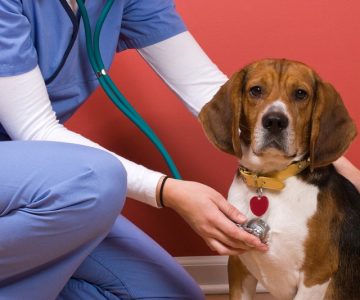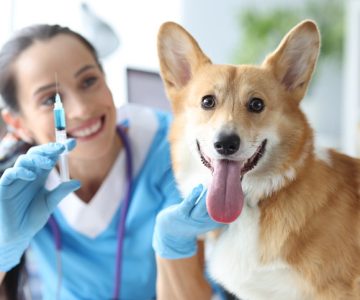When Should You Seek Emergency Care for Your Pet?
As pet owners, our pets are often seen as members of the family, and their health and well-being are a top priority. Knowing when to seek emergency care for your pet can be crucial to providing them with the best possible outcome in critical situations. This article will guide you through various scenarios where it’s advisable to get professional help immediately.
Recognizing the Signs of a Pet Emergency
It isn’t always easy to determine what qualifies as an emergency with our furry friends. Here are some signs and symptoms that should prompt you to seek immediate veterinary attention:
-
Sudden difficulty breathing: This can include choking, constant coughing, or labored breathing.
-
Severe bleeding: This may not stop after a few minutes of direct pressure.
-
Obvious pain or distress: Whimpering, shaking, or withdrawal are clear indicators of severe discomfort.
-
Unconsciousness or sudden collapse: This situation requires immediate intervention.
-
Inability to urinate or pass feces: Especially if accompanied by visible strain or pain.
These symptoms are red flags, but there are many other situations where your pet might need urgent care.
Case of Toxic Substances or Poisoning
If you suspect that your pet has ingested something toxic, don’t wait for symptoms to appear. Many substances, like chocolate, xylitol, or certain plants, are poisonous to pets, and symptoms may only appear after the toxin has caused significant harm.
Actions to take:
-
Remove the toxic item from your pet’s reach immediately.
-
Identify what they ingested and calculate how much of it they ingested, if possible.
-
Contact a vet immediately for specific instructions.
Post-Trauma Care
Whether from a fight with another animal or an accident, physical trauma can result in internal injuries that aren’t obviously visible. Symptoms like limping, refusal to eat, increased heart rate, and hiding are signs that your pet needs urgent care.
Prevent further injury by transporting them safely, and don’t attempt to medicate them without a vet’s guidance. Pain relief intended for human use can be deadly to a pet.
When Your Pet Shows Signs of a Severe Illness
Sudden changes in your pet’s health, such as extreme lethargy, aggressive behavior when touched, difficulty standing or walking, or a noticeable downturn in their general mood, might mean your pet is experiencing a severe illness. Unlike gradual illness signs, these symptoms often develop quickly and can worsen rapidly.
Immediate veterinary attention can make a significant difference in outcomes for conditions like pancreatitis, kidney failure, or complications from diabetes. Keep the contact information of nearby emergency clinics handy, such as services similar to Coastal Care Veterinary Emergency. Remember, the quick action you take can make all the difference to your pet’s health and recovery.
Neurological Emergencies
Neurological signs can be particularly alarming. These include seizures, sudden blindness, loss of balance, or acute behavioral changes. These symptoms indicate an underlying condition that requires immediate intervention.
Considering services like emergency vet in Clayton Park can provide your pet with prompt and necessary care, potentially saving their life in severe cases.
When Is It Safe to Wait?
While many situations require immediate action, there are times when you might need clarification on whether a vet visit is necessary. Here’s what to consider:
-
Monitor closely: If your pet seems off but isn’t displaying severe symptoms, keep a close eye on them.
-
Consult a vet over the phone: Many clinics offer advice over the phone to help you determine the urgency of the situation.
Preparing for a Possible Emergency
In the unfortunate event of an emergency, being prepared can save valuable time and help ensure your pet receives the fastest possible care. Keep an emergency kit for your pet that includes:
-
Their current medical records
-
Emergency contact numbers
-
Basic first aid supplies
-
Carrier or leash for safe transport
Additionally, knowing the location of your nearest 24-hour veterinary service is crucial. If you live in an area like Halifax, noting the contact details for an emergency vet Bedford can save crucial moments in an urgent situation.
Financial Considerations
Emergency veterinary care often comes with hefty costs. To manage these expenses better, consider establishing a dedicated savings account for your pet’s health needs or invest in comprehensive pet insurance focusing on emergencies. This proactive financial strategy can significantly reduce the stress related to unexpected, high veterinary bills during critical times.
Final Thoughts
Being aware of the signs of an emergency in your pet, taking proactive steps to prepare for potential urgent care needs, and knowing when to seek professional help can make all the difference in your pet’s health and well-being. In times of crisis, immediate action and clear thinking are crucial.
Trust your instincts as a pet owner: if something seems wrong, it’s better to err on the side of caution and contact your vet. Remember, the better prepared you are, the better you can help your cherished pet in their time of need.





